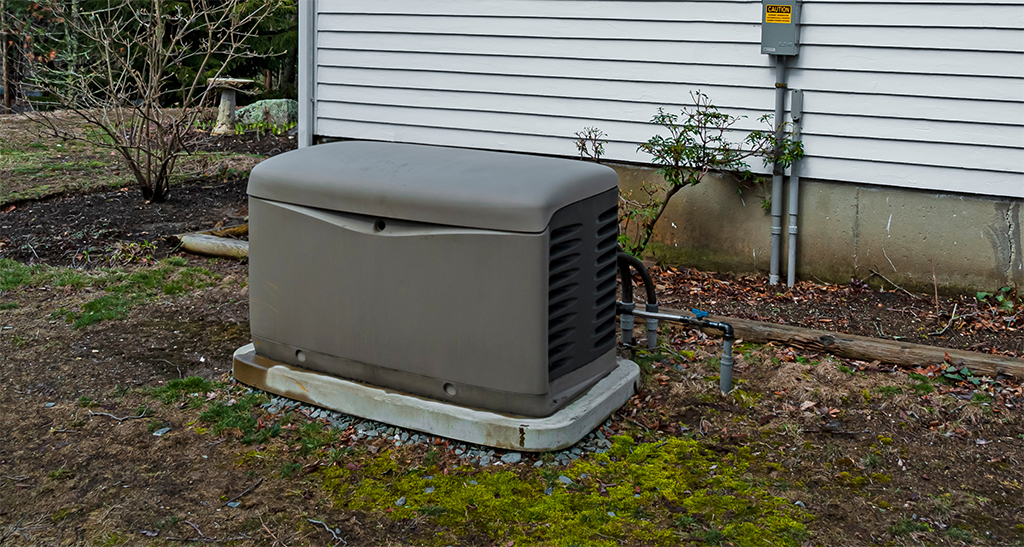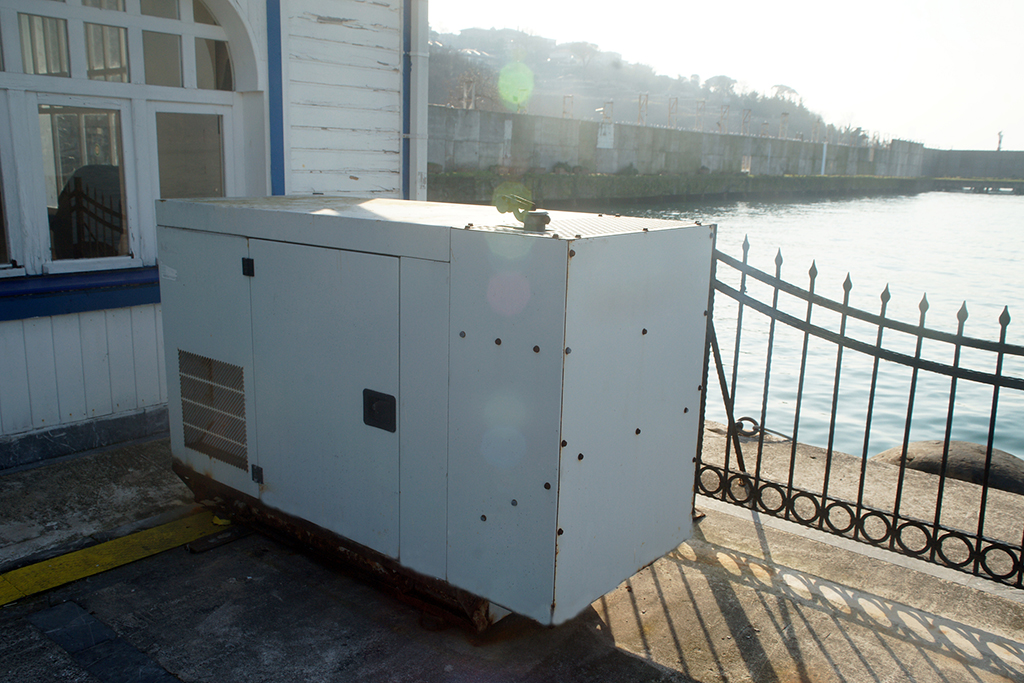
Generator Sizing Guide: Perfect Match For Your Home
A generator sizing guide helps you pick the right generator for your home. It explains the different types and power sources and helps you figure out your wattage needs. To get the right generator, you need to look at your power needs, think about the fuel type, and calculate your energy use based on your home size.
Understanding Generator Types
Ever wondered what generator is best for your home in Marion, SC?
With so many options, it’s key to know the differences to make a smart choice.
Portable generators are perfect for temporary needs or small power outages.
They’re easy to move and usually run on gas, making them handy for quick setups.
Inverter generators give cleaner and stable power, ideal for sensitive electronics.
They adjust engine speed to meet power needs, which saves fuel and cuts noise.
A generator turns motion energy or fuel energy into electric power.
Mechanical energy sources include steam turbines, gas turbines, water turbines, internal combustion engines, and wind turbines.
Generators can be split into dynamos and alternators.
Dynamos make pulsing direct current, while alternators make alternating current.
Many motors can also turn mechanical energy into electricity, showing how versatile these devices are.
Understanding these basics will help you pick the right generator for your Marion home, whether it’s portable, inverter, or any other type.
Power Sources for Generators
When it comes to powering a generator, gas generators and solar generators are the top choices.
But which one should you pick?
Gas generators are the go-to for reliable power.
They run on gasoline and give strong power output.
They are great for heavy-duty uses and can keep your essential appliances, like fridges and heaters, running during a power outage.
On the other hand, solar generators are the green option.
They use energy from the sun, making them perfect for sunny areas like Marion, SC.
These generators store solar power in big batteries, ideal for those who care about the environment.
Plus, they work quietly, giving you power without noise.
Each type has its perks.
Gas generators are more powerful and work well even when it’s cloudy, while solar generators are sustainable and have lower upkeep costs.
To choose the right one for you, think about your power needs, environmental impact, and maintenance requirements.
Whether you choose the strong power of a gas generator or the eco-friendly solar generator, Mister Sparky Generators in Marion has you covered.
Assessing Your Power Needs
Ever thought about how much power your home needs during an outage?
The first step is to figure out the wattage you need.
Start by listing all the must-have appliances like the fridge, HVAC, and any medical equipment.
Next, find out how much power each appliance uses.
For example, a fridge might need around 600 watts, while a sump pump could need 1,000 watts.
Add these numbers to get the total wattage.
It’s like making a wishlist for your home’s power!
Remember, some appliances need more power to start than to run.
An air conditioner might need 2,000 watts to start but only 1,500 watts to run.
Make sure to include these starting watts so your generator won’t fail when things power up.
It’s key to know which appliances you can’t do without during an outage.
This helps Mister Sparky Generators of Marion, SC recommend the best generator for you.
By figuring out your power needs now, you’ll avoid problems later and keep your home running smoothly.
Factors to Consider When Choosing a Generator
Are you wondering how to pick the right size generator for your home in Marion, SC?
Several key factors can affect your choice.
Fuel type and availability are crucial.
Natural gas, propane, gasoline, and diesel each have their perks.
For example, natural gas is handy and burns clean but might not be available everywhere.
Gasoline is easy to find but isn’t great for long-term use.
Runtime and efficiency matter too.
Think about how long you need your generator to run during an outage.
Small, portable models are fine for short-term use, while larger standby generators are better for long periods and are more efficient.
To figure out runtime, you need to know your daily energy use, which varies based on your household size and the appliances you want to power.
Also, think about the generator’s power output.
This includes starting watts needed to turn on appliances and running watts to keep them going.
Appliances like fridges and HVAC systems need more starting power.
So, make sure your generator can handle these peak loads without tripping.
If you’re unsure, talk to the pros at Mister Sparky Generators.
They can help you understand these factors easily, ensuring you pick the right generator for steady, reliable power during outages in Marion, SC.
How to Calculate Your Home’s Energy Usage
How do you figure out your home’s energy usage to ensure your generator meets all your power needs?
Start with a home energy check-up.
This means listing every appliance and gadget and noting each one’s wattage.
Check the device’s manual or label for its power needs.
Add up all the watts to find your peak load, which is the max energy use when all devices run at once.
Knowing the difference between peak load and continuous load is key.
Peak load is the short bursts of high power use, like starting a fridge or AC.
Continuous load is the ongoing power used when things run normally.
Make it simple: list out your main appliances—like your fridge, HVAC system, and medical devices—and their wattage.
Total the watts, then add about 20% as a buffer for unexpected needs.
This total shows the generator size needed to keep your home safe and comfy during a power outage.
By doing a complete energy check-up, you ensure you pick the right generator, avoid overloads, and have power when you need it most in Marion, SC.
Generator Sizing for Different Home Sizes
Small Homes (Less than 2000 sq. ft.)
Got a cozy home and not sure about the right generator size?
A generator with 3,000 to 5,000 watts usually does the trick for small homes.
This can cover your lights, fridge, and a few other small appliances.
Just remember, you need to check your specific needs—one size does not fit all.
Medium Homes (2000 – 4000 sq. ft.)
For medium-sized homes, you’ll need more power.
A generator with 7,500 to 12,000 watts should be good.
This range can support your HVAC, kitchen appliances, and multiple lights.
Since usage can vary, it’s smart to talk to a pro to get the right fit.
Large Homes (Over 4000 sq. ft.)
If you have a big home, you’ll need a heavy-duty generator with at least 15,000 watts.
This can handle central air, heavy kitchen gear, and multiple entertainment devices at the same time.
Professional advice is a must to avoid wasting money or losing power when you need it most.
For folks in Marion, SC, teaming up with Mister Sparky Generators ensures you get the right generator and expert installation.
Make the right move today!
Safety Tips for Home Generators
Ever thought about the safety tips you need for using a home generator?
The first key is proper installation.
Without it, you could damage your generator or create hazards in your home.
A poorly installed generator can cause backfeeding, where electricity flows back into the grid and may cause fires or shocks.
Next is ventilation.
Generators produce carbon monoxide (CO), which is a deadly gas without smell or color.
So, use your generator in a well-ventilated area, preferably outdoors and away from windows, doors, and vents.
Even if you’re in Marion, SC, where weather changes might tempt you to run the generator indoors, don’t do it.
Also, make sure all electrical connections are correct to avoid shocks.
Use heavy-duty extension cords rated for outdoor use, and connect them directly from the generator to your appliances.
Keep generators dry and avoid using them in wet conditions unless they are designed for it.
By following these safety tips, you can run your home generator safely and have peace of mind during power outages.
Choosing the Right Generator
Picking the right generator isn’t just about how much power you need; it’s also about other factors.
Here are some considerations:
Maintenance and running costs are important.
Portable generators often cost more to run because they use gasoline, which is pricey and needs frequent refills.
Stationary generators, using natural gas or propane, usually cost less to run and are more efficient over time.
But, it’s not just about fuel and operational considerations.
Maintenance is crucial too.
Portable models might need more regular servicing, especially if used a lot.
Stationary generators, though often more reliable, still need yearly check-ups to run well.
Lastly, think about essential components like installation quality.
While professional installation ensures safety, efficiency, and long life for your generator, it’s an investment worth making.
Remember, investing in a good installation saves a lot of trouble and money in the long run.
Whether you live in Marion, SC or anywhere else, choosing the right generator can make all the difference.
Advantages of Professional Installation
Wondering if hiring a pro to install your generator is worth it?
When it comes to your home’s safety and reliable power, you can’t just wing it.
Experts like those at Mister Sparky Generators in Marion, SC, make all the difference.
Expertise and Safety
Pros bring know-how and experience that DIY just can’t match.
They know the codes and rules your installation must meet.
This ensures safe operation and stops dangerous mishaps like electrical fires or carbon monoxide poisoning.
It’s like getting a custom suit versus one off the rack; the fit and finish are just better.
Warranty and Maintenance Services
Another big plus is warranty protection.
Manufacturer warranties often need professional installation; otherwise, you might not be covered if something goes wrong.
Plus, Mister Sparky Generators offers maintenance plans, keeping your generator in top shape.
Regular check-ups by certified techs can extend the life of your generator, saving you money on repairs and replacements over time.
Choosing professional installation for your generator means investing in peace of mind and long-term reliability.
It’s not just about plugging in a machine; it’s about getting integrated, professional service to keep your home in Marion, SC safe, even during a power outage.
Top Brands to Consider
When looking for a good generator, two brands that often come recommended are Duromax and Briggs & Stratton.
Duromax offers a range of generators for different power needs, from small portable ones to strong standby units.
They’re known for their durability and versatility in handling different fuels.
Whether you need a generator for short power outages or a full backup for your Marion, SC home, Duromax is a solid pick.
Their models are popular for giving great value without losing performance.
Briggs & Stratton is a well-respected brand known for quality and innovation.
They focus on home standby generators that ensure smooth power during outages.
If you want reliability and ease of use, this brand is an excellent choice.
Their generators are capable of handling high power needs well, making them suitable for larger homes or essential appliances.
Choosing between these brands depends on what you need.
For good advice and help with installation, Mister Sparky Generators in Marion, SC can guide you to make the best choice.
They offer solutions to keep your home powered, no matter what.
Tips for Keeping Your Generator Running
Regular Checks and Maintenance
Did you know regular checks can extend your generator’s life?
Just like you wouldn’t skip your car’s oil change, keeping up with your generator is key.
Look for leaks, loose connections, and strange noises.
These checks should be part of your routine to catch small problems before they become big ones.
Storing Your Generator Right
Proper storage is crucial.
Always store your generator in a dry spot out of the sun. Moisture and heat can cause damage.
Use a cover for extra protection and keep it off the ground to avoid water damage.
If you’re in Marion, SC, remember the local climate; humidity can speed up wear and tear.
By following these tips, you’ll keep your generator reliable and efficient.
For best results, you can always reach out to Mister Sparky Generators.
Their know-how in generator services ensures thorough maintenance to keep your power steady.
FAQs
- What size generator do I need for my home?
The size of the generator you need depends on the total wattage of the things you want to power during an outage. Typically, a small home needs a 5,000 to 7,000-watt generator, a medium home needs 7,000 to 10,000 watts, and a large home needs over 10,000 watts. Always talk to a pro like Mister Sparky Generators in Marion, SC, for a personalized assessment.
- How often should I perform maintenance on my generator?
Regular maintenance is key for keeping your generator running well. It’s usually best to do this every 6 months or after 100 hours of use, whichever comes first. This includes checking oil levels, filters, and running a full system check. Mister Sparky Generators offers full maintenance services to keep your generator in top shape.
- Can I install a generator myself?
While you can set up a portable generator yourself, whole-home generators should be installed by pros. This ensures the installation is safe and up to code. Bad installation can lead to serious hazards like carbon monoxide poisoning and electrical failures.
- What are the benefits of choosing a solar generator?
Solar generators are eco-friendly and can save you money on fuel over time. They are quieter and need less maintenance compared to gas generators. However, they might not produce enough power for bigger homes or during long periods of cloudy weather.
- How can I ensure my generator is safe during use?
Safety involves proper installation, good ventilation to avoid carbon monoxide build-up, and regular maintenance checks. Never run a generator indoors or in closed spaces. Always follow manufacturer guidelines and check with pros like Mister Sparky Generators in Marion, SC, for expert advice and services.



